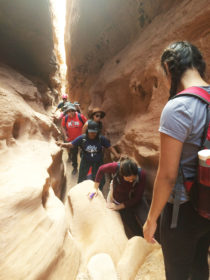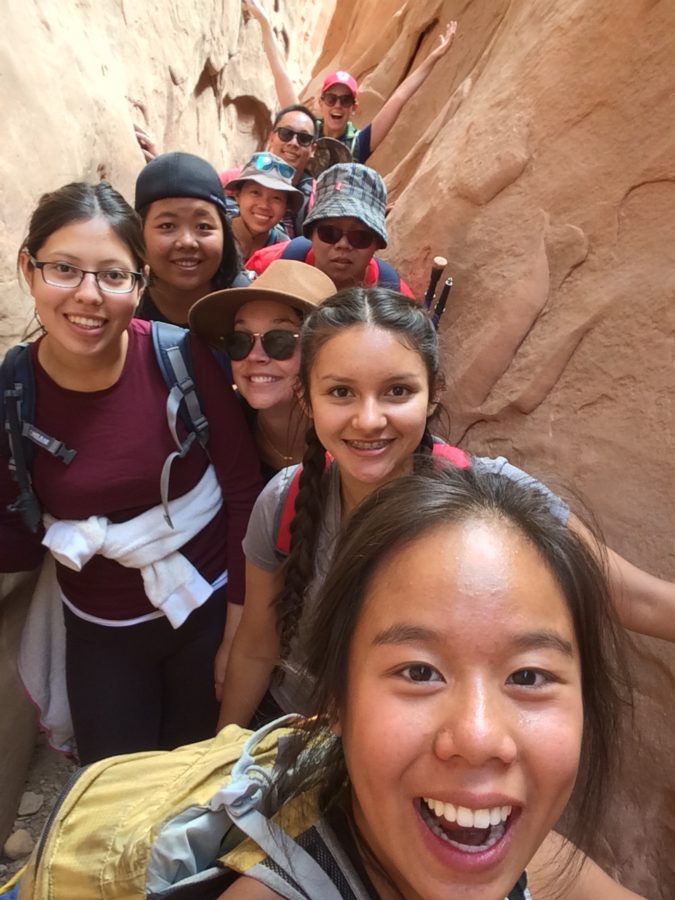Fall break has ended, and while most students are returning to class from a week of work or relaxation, a group of students has returned to school from self-funded trips to work with non-profit organizations around the Western United States.
The students were able to go on these trips as part of the Alternative Breaks program at the Bennion Center. The program offers students a chance to spend their fall break, spring break, or weekends in variously distant communities volunteering and learning about specific issues that affect those communities.
Students embarked on four different trips during fall break. Honors college students went to Portland to learn from and volunteer with organizations involved with urban environmentalism, first generation students went to the San Rafael Swell for a week centered around identity and environmental exploration, some went to Seattle for service and learning about homelessness and others traveled to Kanab to volunteer at the animal sanctuary. Regardless of location or issue, each student worked about 30 volunteer hours over the course of the week.
The trips can provide leadership opportunities, knowledge and service opportunities and help students build their resumes.
However, Laura Schwartz—the Bennion Center’s Alternative Breaks Coordinator—said she thinks one of the greatest strengths of the Alternative Break program is that most of the trips are open to any interested student at the U, so there’s a large range of diversity among the groups of students who—for the week—learn, volunteer, cook, travel and live together. Many students from the program reported that they enjoyed the strong group dynamics between the people they traveled with.

The range of things participating students said they enjoyed most ranged from learning about love and compassion to learning about policy-making. Schwartz says that’s the goal; the trips are designed to be meaningful to everyone who goes in such a way that each individual participant has their own unique takeaway from the week.
According to their website, the Bennion Center hopes to provide communities with “tangible service work” and students with “broader perspective of the world”, “experiential learning” and to promote “lifelong service”. It’s their goal to change the lives of those who attend.
Schwartz said she’s always interested in the student’s feedback. However, the most important thing to her isn’t what they enjoyed most about the trip but what they’re going to do because of it.
Many students who participated report that they plan to study the issues they learned about more, or become more involved in some other way. Some choose to participate again. Moving forward, Schwartz estimated that about a third of the students who participate each alternative break have participated before, and each trip is planned not by a faculty member but by a student leader who has participated in the past.
Those leaders spend six months to a year planning and building relationships with local non-profits and community partners before any alternative break trip.
Alternative spring break is a larger program than alternative fall break; there will be eleven trips focusing on issues ranging from coastal ecosystem restoration to LGBTQ+ and human rights. Schwartz says registration ends Nov. 28. While the trips are student funded, the Bennion Center works to make sure the trips are as accessible as possible; discounts are available to those who may not be able to afford the full cost.
e.vandersteen@dailyutahchronicle.com
@EliseAbril


